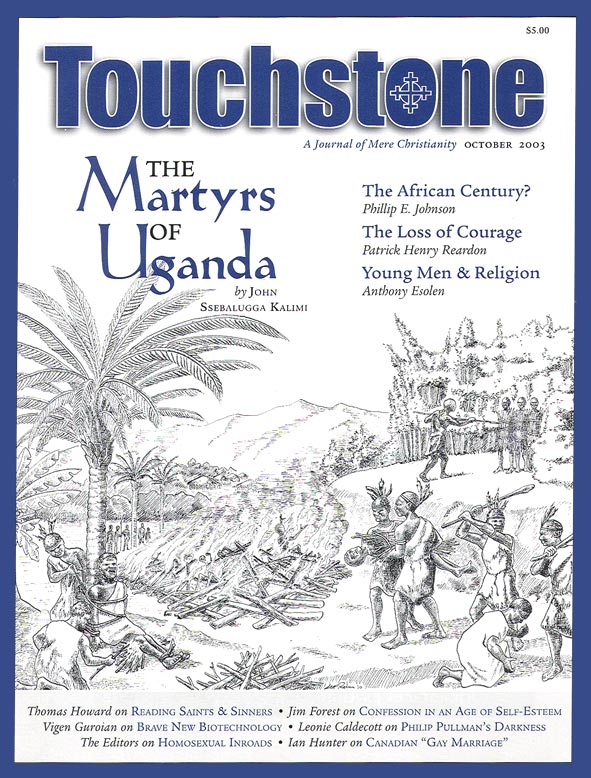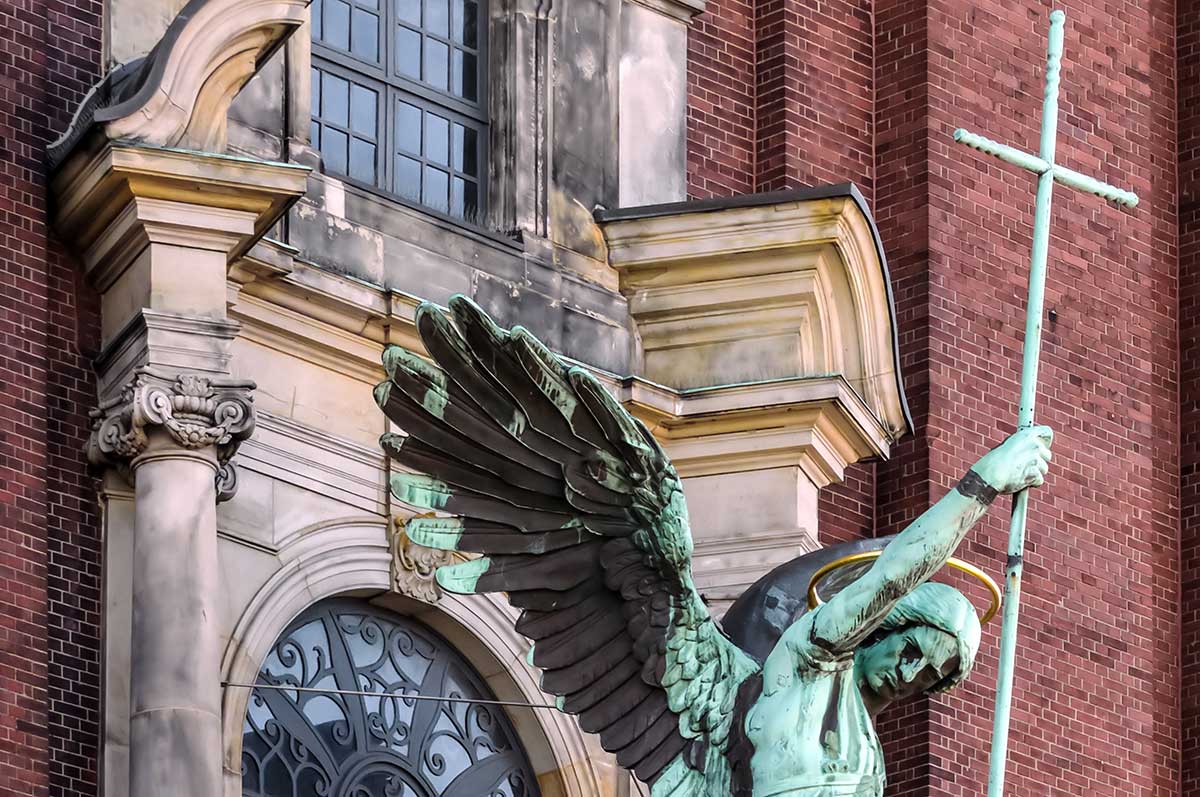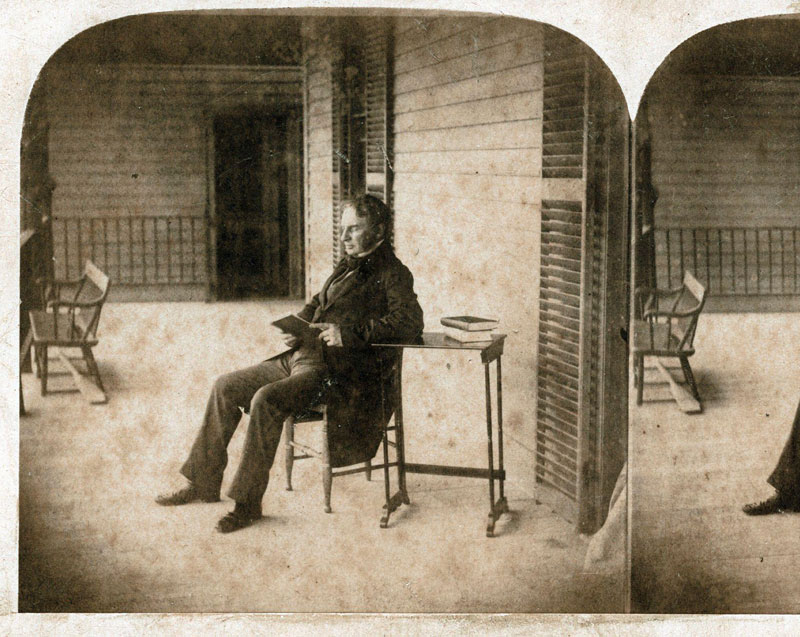The Wages of Reading
Thomas Howard on the Literature of Saints & Sinners
A school friend of mine, whom I have not seen for 45 years, recently sent me a sheaf of articles from The Atlantic Monthly, to which he appears to subscribe. Actually, they were book reviews, but of article-length. I found myself galvanized by all of them. They were almost all reviews of recent literary biographies—Evelyn Waugh, Upton Sinclair, Mary McCarthy, H. L. Mencken, Kingsley Amis—that sort of thing.
I began with the Waugh review, since Waugh is a favorite of mine, and I happen to be on his side on every possible topic: manners, the aristocracy, the collapse of civilization, Roman Catholic orthodoxy, bores. I cordially disagreed with the reviewer of the book in question, who clearly was unsympathetic to Waugh’s ferocious religious and social outlook. But never mind that.
The reviews that began really to engage my attention were those that concerned themselves with Samuel Pepys (pronounced Peeps, if your seventeenth-century English studies have gone a bit rusty), the enfant terrible of diarists; Lord Byron, the sensationally romantic figure whose life was at least as fantastic as his poetry; and Oscar Wilde, the acidulous epigrammatist of the late nineteenth century who ended up in jail for having sued for libel the Marquess of Queensberry, who accused Wilde of sodomy (or, as we would more delicately say nowadays, of having an affair) with the marquess’s son, Lord Alfred Douglas. Wilde, as readers will all remember, lost the case (the marquess’s charges were true, alas), and went to jail (gaol in English) for two years, and died miserably four years after his release, in 1900.
Swept Away
I was quite swept away as I read these three articles. I mean, here is Pepys, simply writing down every little thing of every day of his life in the London of Charles II. His shoes, his socks, his maid, his food (mustard and tripe was a favorite dish of his), his “going abroad” (walking) in the streets of a London, which, by the way, in his day stretched only from the Tower to Park Lane, and from Oxford Street to the Thames. (Obviously, things had begun to spill over into the fields a bit.)
Nothing is of no interest to him. Critics have scratched their beards over the question as to just wherein we are to say the genius of all this lies. But genius it seems to be. Of course, we are also regaled with the most clinical, or shall we say leering, scrutiny, not only of all of his (daily?) fornication, but of every scrofulous pustule, wen, follicle, boil, carbuncle, and septic outcropping on every square inch of his and his ladies’ bodies. For a mid-Victorian like me, the whole thing is beyond unspeakable. And there are no smallest details of the scatological aspects of our mortality upon which he does not descant with the greatest zest.
But on the other hand, Pepys has given us probably the best descriptions of the Plague of 1664–1665 (not to be confused with Defoe’s Journal of the Plague Year, on the same disaster, but published in 1722) that have ever been written, and also of the Great Fire of London in 1666. On this latter topic we do, in fact, glimpse details that reveal Pepys’s great and sympathetic heart. After telling about the poor people struggling down the steps of the Embankment with what belongings they could salvage, into boats on the river, he then tells us about the “poor pigeons” who, nonplussed by the conflagration, do not have the sense to leave their perches, and some of whom consequently find their wings burned up, and fall to the ground to die.
Well. So much for Pepys, for the moment. He is a “figure” in English literature, and has a firm place in the “canon.” What about Byron? He, of course, is a colossus, in all senses of the word. He was beautiful, titled, dashing, insatiably adventurous (not to say reckless), restless, brave (although he never actually fought in a battle, much as he tried), and lecherous. He married, but seems to have spent the rest of his days ravishing both boys and women. His interminable poems—Childe Harold’s Pilgrimage, Manfred, Don Juan (pronounced, by the way, Joo-un, by academics), Mazeppa, The Giaour—where shall we stop?—extol the super-romantic ideal of the bold, brave, dashing, wildly colorful young man who ravens down (short a there, like Claudio’s rats in Measure for Measure) all conceivable experiences like so much ale. It is all quite breathtaking and intoxicating, and is likely to make one look at one’s own demure, not to say drab, existence, and think, “Life is passing me by.”
And then we have Oscar Wilde. Actually, when it comes down to it, he is not much of a literary figure, if we are speaking of major English authors. He didn’t write much that was good. Oh, to be sure, The Importance of Being Earnest (which Wilde was not) will last forever, and rightly too. And “The Ballad of Reading Gaol” is deeply moving. But The Picture of Dorian Gray cannot be held to be among the great English novels. And most of the rest of Wilde’s oeuvre has sunk from view.
We all think of Wilde, of course, as being diabolically witty. Here again, rightly so. He could toss off, at the smallest provocation—or without provocation, for that matter—some of the funniest and most withering obiter dicta ever uttered by man. In his heyday he was lionized by the rich and fashionable, especially hostesses. And at Oxford he cut a bizarre figure, quite ostentatiously and calculatedly, by the clothes he chose to wear. He is, no doubt, the original of Gilbert and Sullivan’s Bunthorne, in Patience—your archetypal aesthete—epicene, effete, affected, and suave.
Thomas Howard taught for many years at St. John's Seminary College, the Roman Catholic seminary of the archdiocese of Boston. Among his many works are the books Christ the Tiger, Evangelical Is Not Enough, Lead Kindly Light, On Being Catholic, and The Secret of New York Revealed, and a videotape series of 13 lectures on "The Treasures of Catholicism" (all from Ignatius Press).
subscription options
Order
Print/Online Subscription

Get six issues (one year) of Touchstone PLUS full online access including pdf downloads for only $39.95. That's only $3.34 per month!
Order
Online Only
Subscription

Get a one-year full-access subscription to the Touchstone online archives for only $19.95. That's only $1.66 per month!
bulk subscriptions
Order Touchstone subscriptions in bulk and save $10 per sub! Each subscription includes 6 issues of Touchstone plus full online access to touchstonemag.com—including archives, videos, and pdf downloads of recent issues for only $29.95 each! Great for churches or study groups.
Transactions will be processed on a secure server.
more from the online archives
calling all readers
Please Donate
"There are magazines worth reading but few worth saving . . . Touchstone is just such a magazine."
—Alice von Hildebrand
"Here we do not concede one square millimeter of territory to falsehood, folly, contemporary sentimentality, or fashion. We speak the truth, and let God be our judge. . . . Touchstone is the one committedly Christian conservative journal."
—Anthony Esolen, Touchstone senior editor










